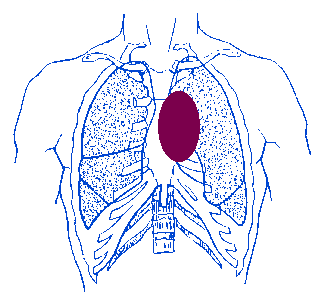| Understanding Neoadjuvant
Chemotherapy The biggest risk with
lung cancer, is spread through the bloodstream to spread to other areas of the body
(metastases.) For this reason many studies have been completed giving chemotherapy after
initial treatment (surgery or radiation) in an effort to prevent distant spread (adjuvant
chemotherapy.)
Studies using chemotherapy prior to surgery (referred to as neoadjuvant chemotherapy) have
shown promise. In the randomized trial by Rosell survival was increased from 8
months to 26 months. RTOG 88-08 trial showed that chemo prior to radiation improved
survival (20%/2y to 31%.) A SWOG 8805 trial also reported good results for stage IIIA
(27%/3y) and particularly IIIB (24%/3y) with neoadjuvant chemo/radiation.
|
